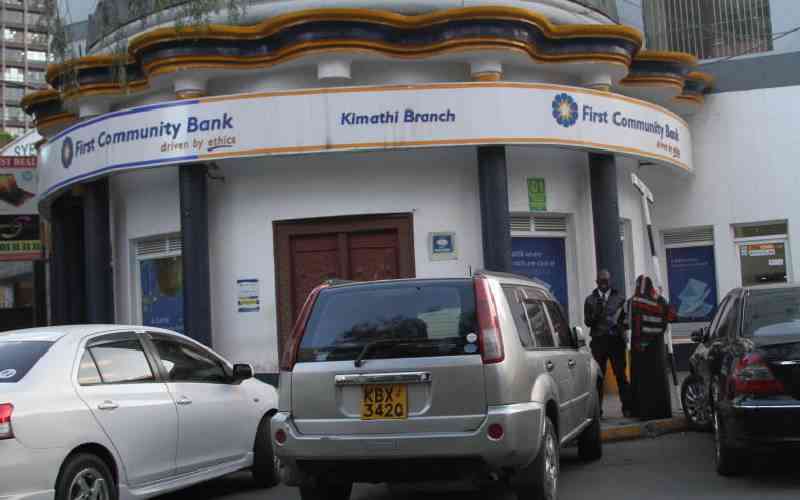×
The Standard e-Paper
Join Thousands Daily

Two weeks ago, an unnamed woman called this reporter to tell him that she had been denied access to Sh46,000 that she had deposited in First Community Bank.
"Something is not right here. Can you talk to the manager (of First Community Bank) and find out what is going on?" she requested, asking not to be identified.